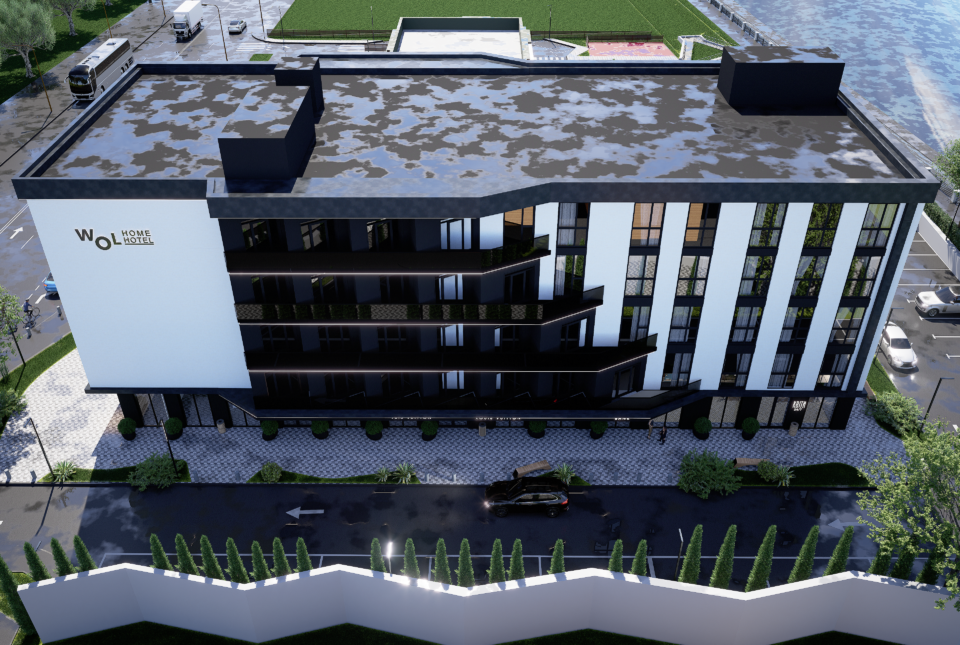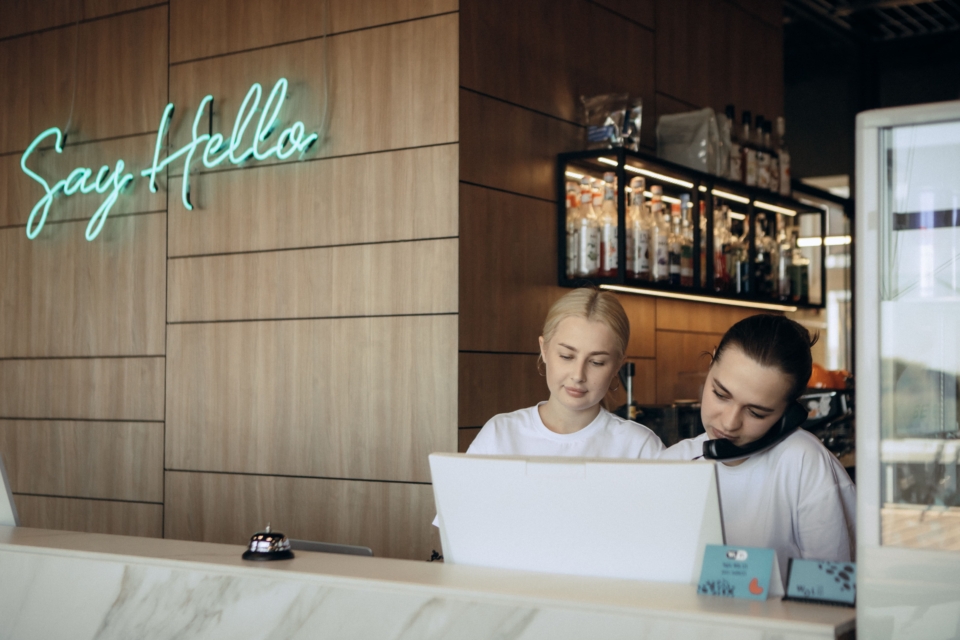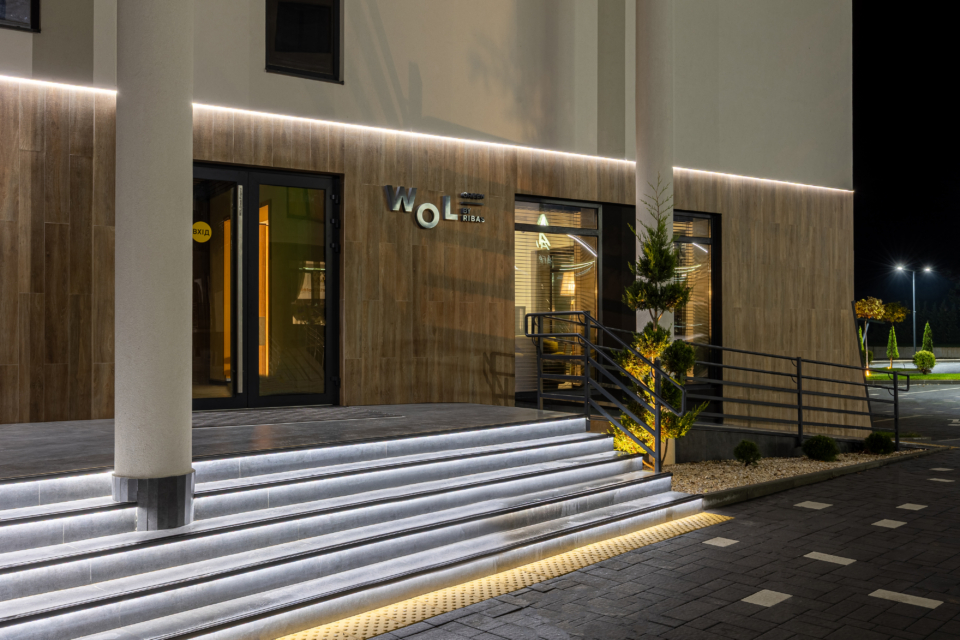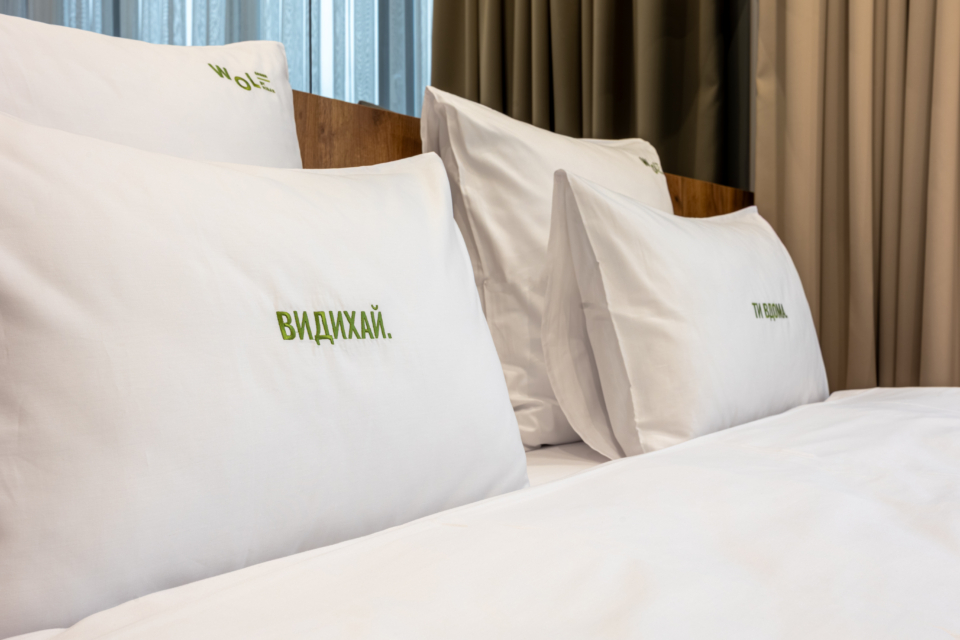Artur Lupashko, the Founder of Ribas Hotels Group, Interviewed at the Ukrainian Construction Congress
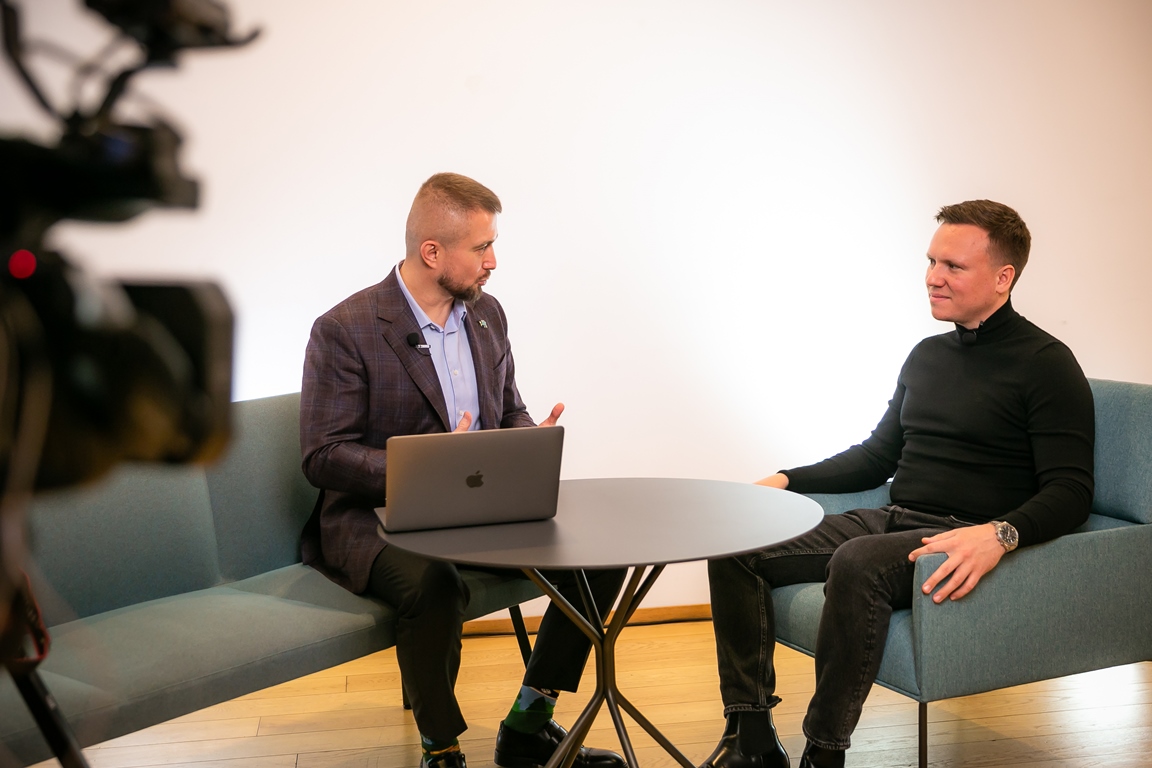
You are the founder and CEO of Ribas Hotels Group that you run, and you successfully operate hotels in Ukraine and have authored the book More Than Service. There are a total of 28 hotels under your management now. So my first question is, you were 24 when you started your business, how did you come up with the idea to try your hand at the hotel industry?
The idea came about by accident, but I’ll be honest, I was inspired by Four Seasons, a book by Isadore Sharp. When I read it, I realized that you could build a global hotel chain without any investment of your own. So when I started, I had no money. I had only $500 to rent a miserable office and hire the first two employees who were engaged in booking and promoting hotels.
I started by providing a comprehensive hotel booking and promotion package. Then I proposed to improve hotel service and thus started managing hotels in the Odesa region. 2014 was a turning point as there were very few guests because of the war. Hotel owners did not understand why the methods that had worked before 2014 were no longer viable.
And that, like any crisis, opened a window of opportunity for me.I started developing a management company with the aim of building a global network like Isadore Sharp or Horst Schulze of The Ritz-Carlton once did. My goal is to build a Ukrainian global chain, Ribas Hotels Group, which hails from Ukraine. Everyone around the world will know that Ribas is a great four-star hotel chain operating in resorts and cities, which was born in Ukraine and has gone international. By the way, the first projects have already been put in place in Indonesia, Italy, Armenia and Poland, and this happened during the war.
If I am correct, you also manage a Radisson hotel in Odesa, two Radisson hotels in Kyiv, The Park Inn in Kyiv and another Radisson in Bukovel. Why did you go for the Radisson chain?
This is a case for us when we say that you live in a Radisson in Odesa and you like the service. You like everything that goes on in this hotel, you like the breakfasts, and it is Ribas that manages the whole thing. Our management level is no worse than that of any other global chain. We can manage just as well or even better than anyone else around the world. So to demonstrate this through deeds and not just mere words we started managing the first hotel of the world-famous Radisson brand.
So Ribas Hotels Group stands as a third-party management company. Here is the Radisson brand, here is the hotel owner, and here is Ribas as a local management company. We are currently negotiating the management of a Radisson hotel in Phuket, Thailand, and a Best Western hotel in Turkey, which are being built by Ukrainian developers. They are eager to buy a brand because they are aware of how it contributes to profitability. A brand generates more profit in a global context. However, it is better to be managed by a company like ours because we are more flexible, responsive and innovative. And as you know, as was the case with Diia in Ukraine, we quickly skipped over some of the things that we missed and have done something more innovative that is not out there in the world. I’m trying to do the same thing in my company. I’ve missed a lot of things that the global chains have, but I want to go all the way straight to a more innovative solution in terms of management and service and overtake the global chains that way.
You said early on you started your business without any money, but how do you manage to raise funds for construction and investment in your business now?
This is a multi-level question, and it requires an in-depth answer. First, people trust people, so this is a question of personal business reputation, a question of soft skills that partners, developers and investors see in me. This is a question of responsibility; I am committed to always being personally responsible for every single thing. I can never blame the country, the circumstances or whatever; there is only me and my responsibility for all I do, for my team, for my city, for my projects.
Second, this is about human capital, because without my team, I am a nobody from nowhere. By gathering a strong team and strengthening it year after year, we clearly see that investors are increasingly trusting us. What they see is that Ribas employs the best specialists and cares about its own teams, which means security, predictability, stability, and growth for investors.
I often hear investors say we are like what the bitcoin was 10 years ago, and they feel they should invest in us now because we are definitely going to grow.
You also mentioned earlier you started your career in 2014. Since then, you have succeeded in delivering several projects, some of which were a success in 2022, and are now going forward. You have suggested that a crisis is a window of opportunity. Do you personally believe this, or is it simply what is widely accepted to be true by you or others in today’s business world?
My case is a striking example of this. We started doing this business thoroughly when the war broke out in 2014. Before 2014, I did it just to try it out, but in 2014 we were already a company. In 2020-2021, we faced a pandemic, but we made our first quantum leap back then. We opened new hotels that have now become our flagships and made us better known. We also started a new area of development business, which created many PR cases.
Today, in this time of war, the development business cluster has become another stepping stone for our rapid growth. Over the past two years, we have launched 15 development projects in partnership with construction companies and developers who build condo hotels. We are closely involved in creating these products. But why did it come to the fore during the war?
First, there is a rearrangement of the development market, and this kind of hotels are being built mainly in the western region. Investors no longer trust commercial and residential real estate, so they are actively buying hotel rooms, apartments and cottages in the complexes we manage. Sales are growing rapidly, which means that the crisis has once again opened a window of opportunity for us. We see these windows, we understand what is going on now, and we try to figure out how we can be of use in the new economic model and the new context. We do our best to give what we can offer to the market, and we manage to create something new. I show by my own example that every crisis should be seen as an opportunity to reshape the market and open up new horizons for new players or a new quantum leap.
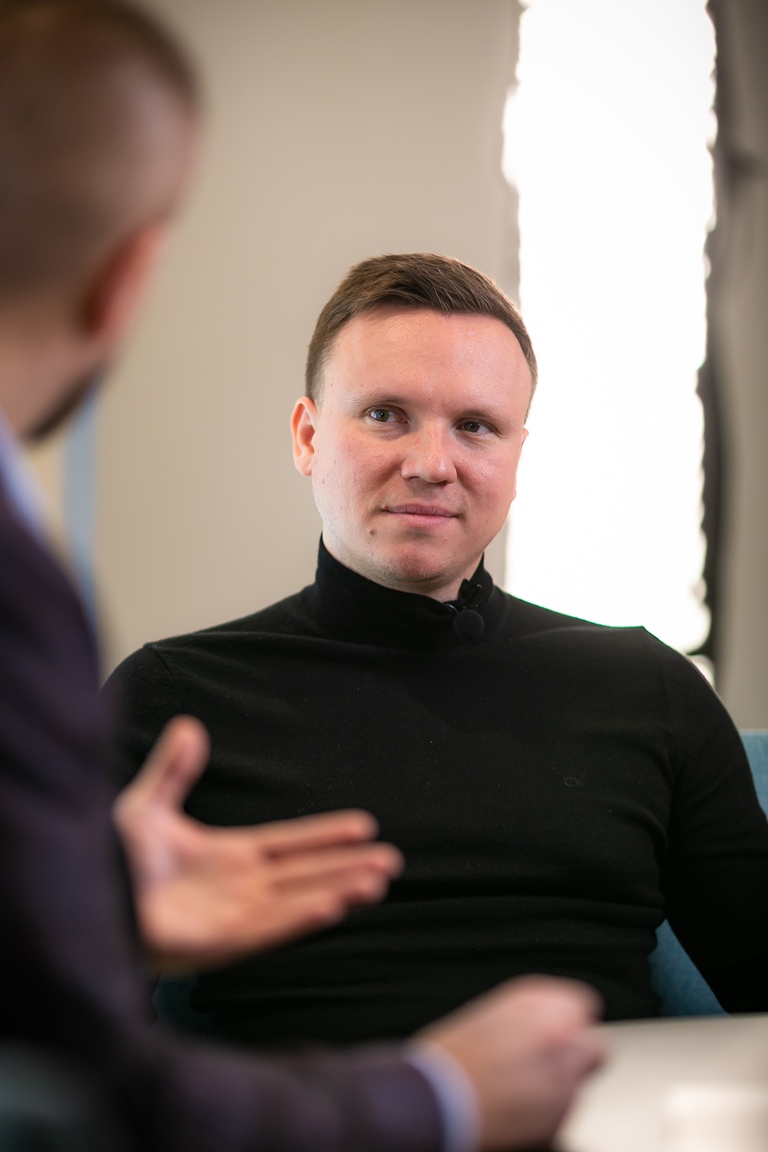
You put it very well. Because those who will watch your interview will most likely not be big businesspeople but rather medium and small entrepreneurs. My guess is that many people just want to take their time, watch and only then start their journey.
This is a huge mistake, and from a business perspective, this is an overcomplication. From a professional point of view, you lose your enthusiasm. When you start counting and recounting something over and over, you lose your entrepreneur’s zest, energy and motivation. So entrepreneurs should never stop growing. And one more thing is what I have already mentioned about the window of opportunity. You should really pay close attention to the context, attend forums, watch interviews, read business publications and business media to understand what is going on, where things are going to be, and what my place is in this present and future reality.
Regarding your international projects, you said that in all your global endeavors you export your expertise. For example, you mentioned Thailand, where the situation is different from that in Poland or Romania. Why do they choose you to be their management company? They obviously believe that your expertise is superior to others, don’t they?
You should consider several factors. First of all, Ukrainian service and management are recognized as being top level. Previously, our nationals had an inferiority complex, but the experience we have gained working with other companies shows that Ukrainian management and service are far superior to those of many other countries that are more developed than Ukraine. As the market leader in Ukraine, we bring together a unique combination of skills, including talent, hard work, consistency and commitment to service. Ribas is the leader of the Ukrainian market, and I believe that buying from our company today is a profitable investment option for a developer. They can negotiate the most flexible terms and conditions, and they understand that we can go beyond the Ukrainian market. For the developer, we, as Ukrainian developers and investors, come to be a kind of story of a Ukrainian helping a Ukrainian in the international market. This can be a brand, whether it is Radisson or Ribas, but in any case, Ukrainians export their knowledge, engage local Ukrainians and pass on their DNA to the company. As for dispatching employees to international projects, this task is challenging for me, but they transfer their DNA, knowledge, experience and understanding of how to effectively manage a company in Bali, Italy or Thailand. This is essential to ensure the hotel’s performance and high level of service and achieve our business goals, in particular, moving toward a smart sustainable city. In this way, we are exporting our approach to environmental friendliness in business and the social projects we deliver in Ukraine to international markets.
This book you wrote about service, who is it for, and who do you think should read and explore it?
In fact, this book is for everyone. After reading case studies from different entrepreneurs (the book features 20 entrepreneurs not only from the hospitality industry but also from other industries such as architecture, cinema and clothing), people, even those who are not in business, will be able to understand that service can be not only service but lifestyle as well.
Why did I choose different entrepreneurs, even such as Nova Poshta and Diia? Because my aim is to show the attitude toward service as a journey and a way of life. Service should not only be part of management but also a daily component of life, be it interacting with colleagues and partners or providing services that are developed as internal for the team and external for customers and investors.
I often come across bad service, but by pointing out that I have written this book, I am trying to highlight that Ukrainian service is one of the best and that it should be seen as a brand. Ukrainian service, which has long been underestimated, is a brand, just like Italian shoes, Israeli medicine or German cars. I inspire everyone who interacts with the world by emphasizing that this interaction can be improved through service. In this way, the outcome gets better, the operations get more enjoyable, and all participants in the interaction understand that it should be done with service in mind.
Read the rest of the interview in Home and Interior.
Interviewer: Serhiy Panchenko, the founder of the Ministry of Doors.
Subscribe to our blog to keep up with the latest hospitality market news!




